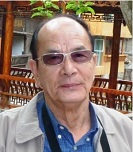International Conference on Coastal Zones
Osaka, Japan

Dr Seng-Keh Teng
Freelance Consultant (Aquaculture & Environment) Singapore
Title: Practical Guidelines of Applying Integrated Coastal Zone Management (ICZM) System to attain Sustainable Development of Coastal Aquaculture Practices in Southeast Asian Region
Biography
Biography: Dr Seng-Keh Teng
Abstract
Coastal aquaculture practices have the potential to produce food and to generate income contributing to social and economic well-being in Southeast Asian countries. Planned and properly managed aquaculture development is a productive use of the coastal zone if the development is undertaken within the broader framework of integrated coastal zone management (ICZM) plan tailored to meet national goals for sustainable development and in harmony with international obligations. Aquaculture operations in coastal waters are subjected to organic pollution. Toxic algal blooms are common in many parts of the world including the Southeast Asian countries. The consumption of raw or partially-cooked fish and shellfish grown in polluted waters is likely to cause diseases due to pathogens or toxins, posing risks to human health. The likely consequences of coastal aquaculture development on the social and ecological environment must be predicted and evaluated, and measures formulated in order to contain them within acceptable, pre-determined limits. Coastal aquaculture practices must be regulated and monitored within the context of ICZM to ensure that impacts remain within pre-determined limits and be brought into effect to reverse any trends leading towards unacceptable environmental consequences. Practical guidelines of applying ICZM system to attain sustainable development of coastal aquaculture practices, particularly in Southeast Asian countries, are briefly described
